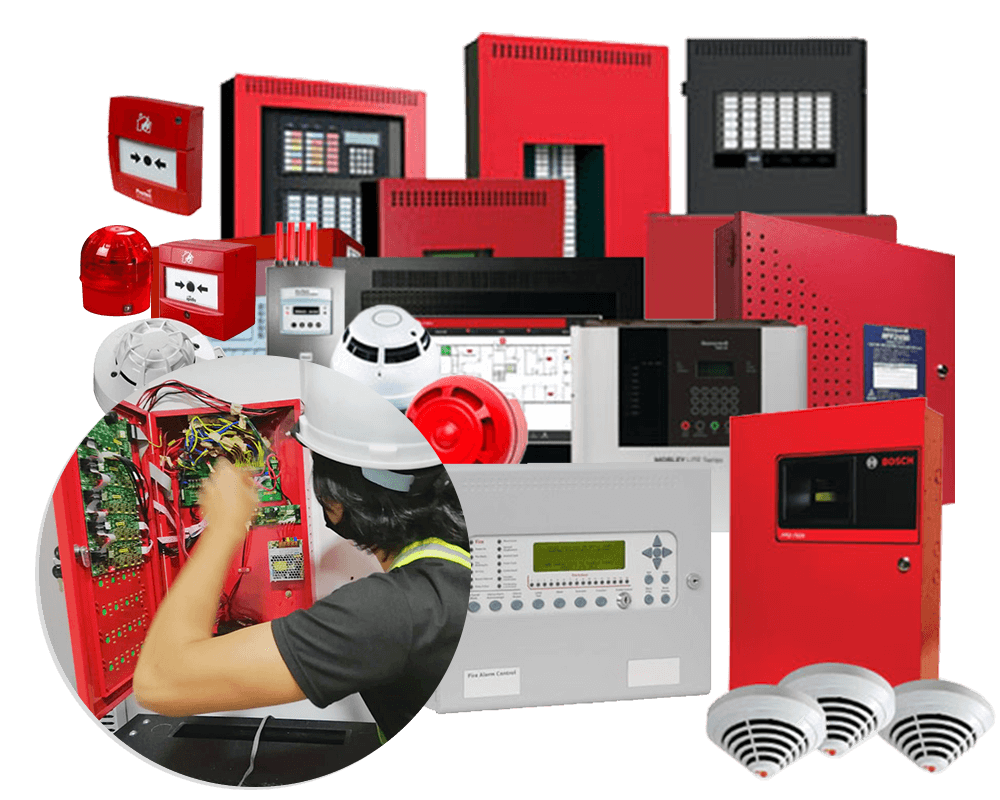Fire safety is one of the most critical aspects of any property, whether it’s a home, office, or large industrial facility. Fire alarm systems serve as the first line of defense against potential hazards, giving occupants time to evacuate and emergency responders time to act. The importance of choosing reliable fire alarm system suppliers cannot be overstated. With the right partner, property owners gain peace of mind knowing their systems meet compliance standards, operate efficiently, and are supported by experts who prioritize safety and precision.
Understanding the Importance of Reliable Fire Alarm Systems
A dependable fire alarm system is more than just a regulatory requirement—it’s a lifeline that can save lives and protect valuable assets. Fires can start unexpectedly from electrical faults, flammable materials, or even human error. When such incidents occur, early detection is crucial. High-quality fire alarms detect smoke or heat instantly, triggering alerts before flames spread uncontrollably. This rapid response significantly reduces potential damage and helps safeguard everyone inside the building. Reliable suppliers ensure that their products are tested and certified to perform accurately under pressure, eliminating the risks associated with cheap, unverified systems. Businesses that invest in advanced fire detection solutions demonstrate a commitment to safety, trust, and operational resilience.
What Makes a Dependable Fire Alarm System Supplier
Not all suppliers are created equal, and understanding what makes one dependable is essential. A trusted supplier should adhere to international fire safety standards such as NFPA (National Fire Protection Association), UL (Underwriters Laboratories), and ISO certifications. These certifications validate that their systems meet strict performance and safety benchmarks. In addition, top suppliers offer not just products but end-to-end solutions that include design consultation, installation, and after-sales support. They maintain a strong reputation for reliability, responsiveness, and professionalism. Customers should also assess a supplier’s experience in handling different types of properties—commercial, industrial, or residential—to ensure suitability. The best suppliers are those who commit to ongoing innovation, upgrading their systems to match the latest safety technologies.
Types of Fire Alarm Systems Offered by Leading Suppliers
Fire alarm system suppliers typically provide several types of systems tailored to different needs. Conventional fire alarm systems are ideal for small buildings or simple layouts, where zones can be easily monitored. Addressable fire alarm systems, on the other hand, are designed for larger or more complex facilities, offering pinpoint accuracy in identifying the location of a fire. For modern buildings, wireless and smart fire alarms are gaining traction due to their ease of installation and real-time data capabilities. Some suppliers also offer integrated systems that connect with CCTV, access control, or building automation platforms. The ability to choose from multiple system options allows clients to customize their safety strategies based on their building’s requirements and budget.
How to Evaluate Fire Alarm System Suppliers Before Partnering
Choosing the right supplier requires careful evaluation. Start by assessing their industry reputation through client reviews, case portfolios, and references. A proven track record reflects their ability to deliver high-quality systems and dependable service. Technical expertise is another critical factor—suppliers should have a team of trained engineers capable of performing installation and maintenance. It’s also vital to confirm their response time during emergencies or service requests. Warranty and maintenance packages indicate how confident a supplier is in their products. Look for suppliers who provide comprehensive service agreements that include:
- Regular system testing and calibration
- Prompt replacement of defective components
- 24/7 customer and technical support
- Access to genuine spare parts and software updates
A reliable supplier offers not just products, but also a long-term partnership that ensures safety continuity.
Comparing Top Fire Alarm System Suppliers in the Market
Today’s fire alarm system suppliers vary widely in scale, specialization, and technological sophistication. Global brands often dominate with state-of-the-art innovations and internationally certified systems. These companies usually provide integrated smart systems capable of detecting smoke, heat, and gas, offering multi-layered protection. Meanwhile, regional suppliers may stand out with localized expertise and faster customer support. The difference often lies in customization and cost-effectiveness—smaller suppliers can sometimes tailor solutions more precisely to client needs. When comparing options, it’s wise to evaluate system reliability, ease of use, and post-installation support. Industry leaders are defined by transparency, robust warranties, and a proven commitment to safety compliance.
The Role of Technology and Innovation in Modern Fire Alarm Systems
Technology continues to transform fire detection and prevention. The rise of IoT-enabled fire alarm systems allows building managers to monitor and control safety systems remotely through mobile applications. Artificial intelligence also enhances accuracy, reducing false alarms caused by steam, dust, or cooking smoke. Smart detectors can communicate in real time, providing detailed insights into the exact location and nature of a threat. Some modern systems integrate with sprinkler or suppression mechanisms for automatic response. This technological evolution not only increases safety but also improves efficiency and cost management. Fire alarm system suppliers that invest in research and development are better equipped to offer the most reliable, future-ready products.
Cost Factors When Working with Fire Alarm System Suppliers
Pricing is an important aspect, but it should never come at the expense of safety. The cost of a fire alarm system depends on the type, scale, and level of sophistication. Conventional systems are generally more affordable, while addressable and wireless systems may require higher initial investments but offer lower maintenance costs in the long term. Reliable suppliers provide transparent pricing structures that detail installation, maintenance, and possible upgrade costs. They also help clients calculate long-term savings through energy-efficient systems and reduced false alarm rates. When evaluating suppliers, businesses should look beyond upfront prices and assess the total cost of ownership. The right supplier will always prioritize safety, reliability, and value over short-term savings.
Common Mistakes Businesses Make When Choosing a Supplier
One of the most common mistakes is prioritizing cost over certification and reliability. Businesses that focus solely on cheap installations often end up with subpar systems that fail during emergencies. Another error is neglecting after-sales service—regular maintenance is essential to keep systems fully functional. Some organizations also overlook system compatibility, resulting in integration issues with existing infrastructure. Failing to assess a supplier’s compliance with fire safety standards can lead to legal and operational risks. Moreover, some companies neglect the importance of proper employee training for system operation. By learning from these mistakes, decision-makers can make informed choices and ensure lasting safety.
Tips for Building Long-Term Relationships with Fire Alarm System Suppliers
Maintaining a strong partnership with your supplier ensures ongoing safety and reliability. Start by establishing clear service-level agreements (SLAs) that define maintenance schedules, response times, and performance expectations. Regular communication helps both parties stay aligned on safety updates and new technologies. Schedule periodic inspections and encourage feedback to identify improvement areas. Building long-term trust also involves transparency and collaboration—choose suppliers who treat your safety as their own responsibility. Over time, this partnership ensures that your fire alarm system remains compliant, updated, and capable of addressing evolving safety requirements.
Frequently Asked Questions (FAQ)
What standards should a fire alarm system supplier comply with?
Suppliers should comply with recognized international standards such as NFPA, UL, and ISO, ensuring that systems meet strict fire safety and performance benchmarks.
How often should fire alarm systems be maintained or tested?
Fire alarm systems should be tested monthly and undergo professional inspections at least once or twice a year, depending on local safety regulations.
Can fire alarm systems integrate with other security or safety devices?
Yes, modern systems can integrate with CCTV, access control, sprinklers, and other building management systems for a comprehensive safety network.
What is the lifespan of a typical fire alarm system?
A high-quality fire alarm system typically lasts between 10 to 15 years, depending on usage, environment, and maintenance frequency.
How do I know if my supplier offers genuine and certified components?
Always request product certifications and verify supplier credentials. Reputable suppliers will readily provide documentation to confirm authenticity and compliance.
Takeaway
Choosing reliable fire alarm system suppliers is a decision that directly impacts the safety, efficiency, and compliance of any building. A dependable supplier not only delivers certified and advanced systems but also supports you through installation, maintenance, and continuous upgrades. By prioritizing certification, service quality, and long-term value, property owners and businesses can protect lives and assets while ensuring peace of mind. In the realm of fire safety, reliability isn’t just a preference—it’s a necessity that defines the line between prevention and disaster.















